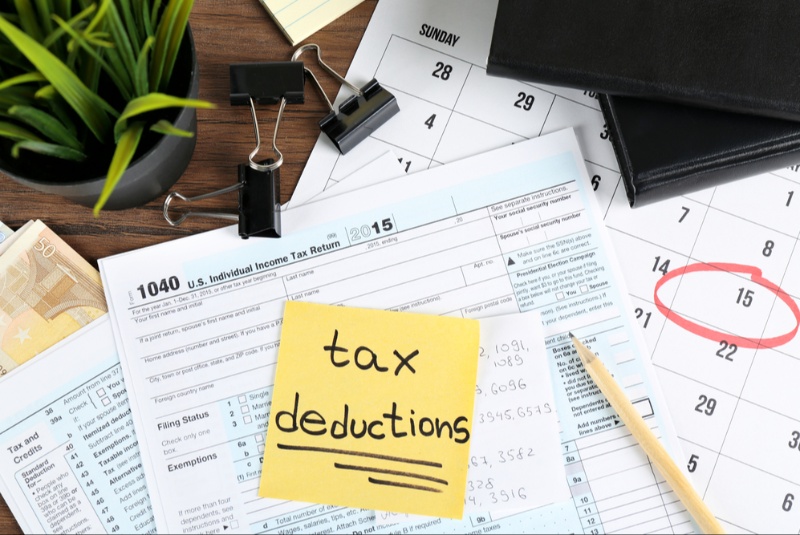As a homeowner, navigating the maze of tax regulations can seem like a daunting task. But with a keen understanding and proactive approach, you can maximize the tax benefits available to you. Owning a home can provide you with a myriad of tax deductions that can significantly decrease your tax bill, making homeownership not just a living arrangement but a strategic financial move. Let's delve deep into some of the most prominent tax deductions available to homeowners and how you can optimize them.
1. Mortgage Interest Deduction
One of the most well-known tax benefits for homeowners is the mortgage interest deduction. Every year, most homeowners spend a significant portion of their mortgage payment on interest. The silver lining is that this interest can usually be deducted from your taxable income.
How to maximize it:
Keep Good Records:
Always retain your annual mortgage interest statements. Lenders will typically send a Form 1098, which shows the amount of interest paid during the year. Keep these records organized and readily accessible to simplify the tax-filing process.
Consider Itemizing:
The mortgage interest deduction is an itemized deduction, so you'll need to forgo the standard deduction to claim it. Ensure that the total of your itemized deductions (including mortgage interest) exceeds the standard deduction. You can also explore other itemized deductions like charitable contributions or medical expenses to further optimize your tax situation.
2. Property Tax Deduction
Homeowners often pay property taxes to local or state governments. These taxes can be deducted from your federal taxable income, reducing your overall tax liability.
How to maximize it:
Pay Attention to Timing:
If you have the flexibility, consider making your property tax payments in a year where you expect higher taxable income. This way, the deduction can offset a potentially higher tax bill. Timing your deductions strategically can lead to more significant tax savings over time.
Keep in Mind the Limit:
There's a $10,000 cap on the combined deduction for state and local taxes, including property taxes. Be aware of this limit, especially if you live in an area with high property taxes. You may not be able to deduct the full amount, but you can still take advantage of this valuable deduction.
3. Home Equity Loan Interest Deduction
If you've taken out a home equity loan or a home equity line of credit (HELOC), the interest you pay on these loans might be deductible. However, the proceeds must be used to buy, build, or significantly improve the taxpayer's home that secures the loan.
How to maximize it:
Document the Use of Funds:
Always keep clear records of how you utilized the loan proceeds. If the funds were used for significant home improvements, save receipts and invoices to substantiate your claims. Proper documentation is essential to support your deduction in case of an IRS audit.

4. Private Mortgage Insurance (PMI) Deduction
If you took out a mortgage with a down payment of less than 20%, you might be paying private mortgage insurance. Some homeowners can deduct PMI payments, but this is subject to income limits.
How to maximize it:
Monitor Your Equity:
Once you've built up 20% equity in your home, you can request to have PMI removed. This not only saves you on PMI payments but also may make other financial strategies more beneficial. Keep an eye on your equity and take action when it reaches the threshold for PMI removal.
5. Home Office Deduction
The rise of remote work has made the home office deduction increasingly relevant. If you use part of your home exclusively for business, you may be able to deduct a portion of your home expenses, such as mortgage interest, property taxes, and utilities.
How to maximize it:
Define Your Space:
The area must be used exclusively for business. This doesn’t necessarily mean an entire room; it could be a clearly defined space in a shared room. Ensure that your home office meets the IRS criteria for eligibility to avoid potential issues during tax filing.
Calculate Expenses Accurately:
There are two methods for this deduction: the simplified option (a standard $5 per square foot of the office area, up to 300 square feet) and the regular method (based on actual expenses). Choose the method that provides the greater benefit for your specific situation. Keep detailed records of your home office expenses, including bills, receipts, and utility costs.
6. Energy Efficiency Upgrades
Tax credits might be available if you've made energy-efficient upgrades to your home, like installing solar panels or energy-efficient windows.
How to maximize it:
Stay Updated on Available Credits:
Tax credits for energy efficiency can change from year to year. Regularly check the IRS website or consult with a tax professional to be aware of the latest incentives. Timing your energy-efficient upgrades to coincide with available credits can yield substantial tax savings.
Keep All Receipts:
Ensure you have documentation for all energy-efficient upgrades. Receipts, invoices, and product specifications are essential for proving your eligibility for energy efficiency tax credits. Proper documentation also facilitates a smoother tax filing process.
Homeownership comes with both responsibilities and privileges. Among the privileges is the potential for substantial tax deductions. By staying informed and keeping meticulous records, you can harness the power of these deductions to make homeownership not just a source of shelter, but a strategic tool in your financial arsenal. Always consult with a tax professional to ensure you're optimizing deductions tailored to your specific situation.
In summary, understanding these tax deductions and implementing strategies to maximize them can lead to significant tax savings over time. Homeownership becomes not only a place to call home but also a savvy financial move that supports your long-term financial goals. Be proactive, keep meticulous records, and explore all available deductions to make the most of your homeowner tax benefits.




